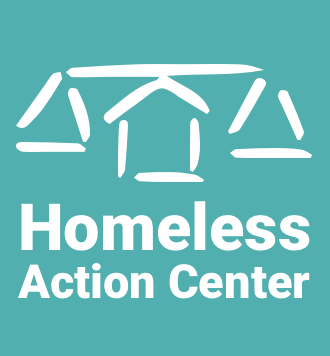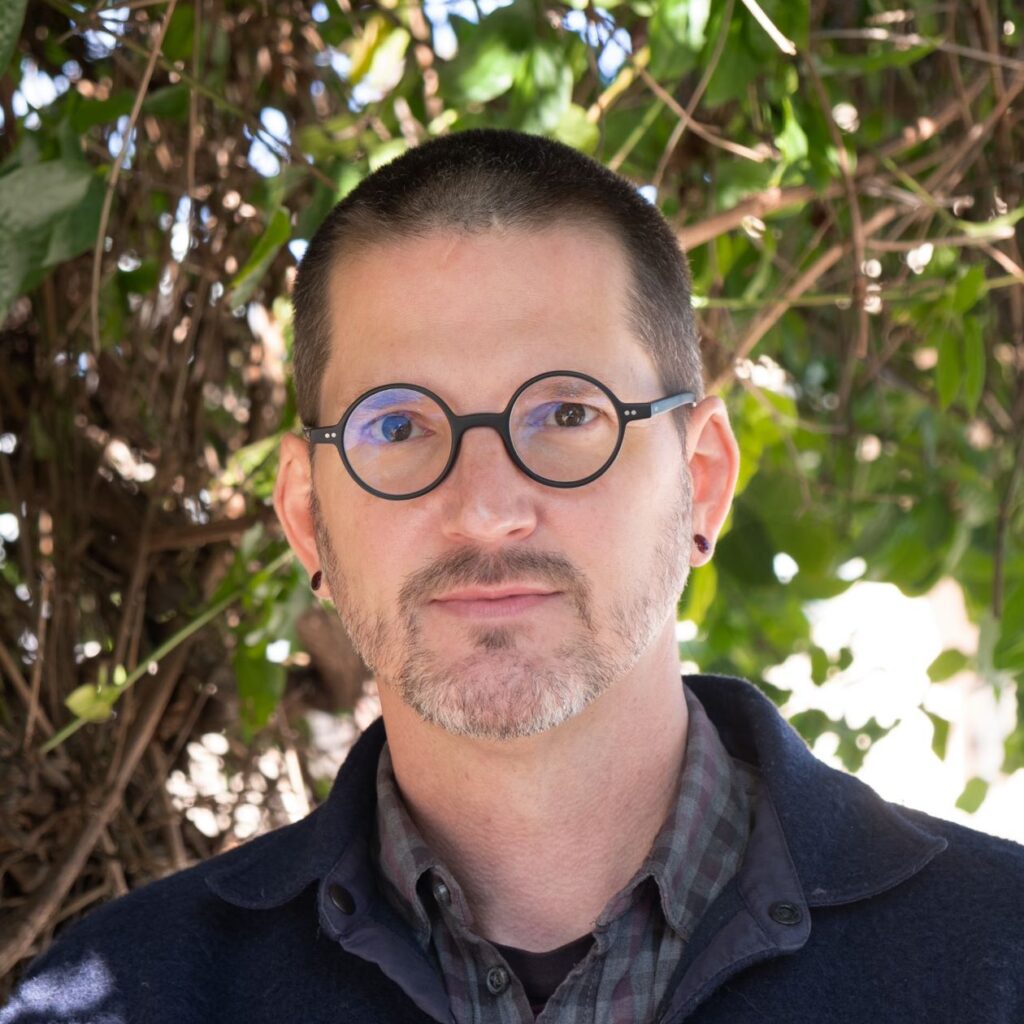By David Waggoner, HAC Appellate Attorney
“Sometimes a breakdown can be the beginning of a kind of breakthrough, a way of living in advance through a trauma that prepares you for a future of radical transformation.”
― Cherrie Moraga
When I was a child in the 1980s, my mother was raising my brother and me by herself in Covington, Kentucky. We lived, for a time, in federally subsidized housing in a complex called Ida Spence. The identical apartment blocks seemed to stretch on and on without end. Mom worked 2-3 jobs at a time to make ends meet but it never seemed to be enough. Going to the Goodwill to pick out a “new” winter coat every couple years after we’d outgrown the old ones is a comforting memory for me – though perhaps not for Mom. Lining up for free USDA food was also exciting to my child mind.
I remember a day I played hooky from school with Mom, and we went to the local food stamp office on a cold rainy day in Covington. When we got back to the car – an old Ford station wagon that was gifted to us – Mom burst into tears. Sobbing, she said she was told she “made too much money” to qualify for food stamps. I was too young to understand the deep humiliation of working up the strength to ask for help only to be told, “DENIED.”
Years later, I experienced severe depression in my early 20s. I was a college dropout on Prozac and worked as a dishwasher, but I always seemed to be broke and broken by the pain of this world. I applied for SSI disability benefits for myself. Mental health care – if it could be called that – consisted of seeing a student therapist and then a quick visit with a psychiatrist. After what seemed an interminable wait in the SSI office, I was informed – just as Mom had been years before – that I made too much money to qualify for any benefits. Sitting there on one side of a steel, gray government desk, I had a sinking feeling. The tears came; everything, in that moment, seemed utterly and profoundly hopeless. No matter how many times we pushed the boulder of dignity up the hill, it rolled away again. Meaningful financial security seemed ever just out of reach. And working – striving for a better future – only seemed to make things worse.
Helping Others Navigate the Labyrinth
Eventually, the clouds of despair and melancholy lifted and when the stars of chance and circumstance had aligned just so, I found myself drawn to helping others navigate the labyrinth of public benefits. The endless forms, the standing in one line and then another and then another, the constantly being referred to as a “number holder.” Perhaps it was my mother’s tears in the 80s or my own tears in the 90s that allowed me to deeply connect to people seeking food, medicine, and shelter. My heart was drawn to the work and my mind was fascinated by the absurdity of the complex legal apparatus that appeared designed to crush the dignity of applicants.
It was always more of a calling than a job. The fight for public benefits is never just about one application for SSI or General Assistance or Food Stamps. Every application – every client – is an opportunity for a kind of justice to happen for that particular human being. Every public benefits case contains the hope for a measure of dignity to be asserted, demanded, insisted upon – a gesture of resistance to a system which all too often treats the individual seeking help as lazy, untrustworthy, or morally deficient. Unlike a religious calling, however, there is no eternal reward in the Social Security Administration. There is no hope of ever “winning” in the grand sense; HAC does not focus on “policy work,” but rather the slow, careful, deliberate building of relationships with our colleagues, our clients, government aid workers, judges, and ourselves, to achieve very finite goals for one person at a time.
The more I’ve thought about the work of public benefits advocacy over the ensuing years, the more I’ve realized that people “of means” have accountants, attorneys, tax preparers, financial advisors, college counselors – a virtual army of professionals helping them and their children hold on to their wealth, build more wealth, and hide that wealth from the long arm of the government. And poor people – applicants for public benefits – are lucky to get a social worker or a case manager to give them the time of day. In this way I have come to see public benefits lawyers as doing the same work as corporate lawyers, but instead of helping the rich get richer, we help the poor get an economic lifeline, some medical care, and, sometimes, a life-changing amount of money. You know, the same way rich people use the law. Except in the case of our clients, we aren’t protecting stock options, offshore accounts, vacation homes, or generational wealth. We are simply providing vigorous advocacy for our clients to ensure they obtain every government benefit to which they are entitled by law. And by design, the law of public benefits is every bit as complex as the law of corporate securities litigation.
It has never only been about whether we win a given case but about how we go about representing our clients.
Public benefits advocacy at Homeless Action Center isn’t simply about winning SSI cases. There are many private firms and – for that matter – other legal aid organizations that help people obtain disability benefits. The reason I have remained at HAC for nearly 17 years is the way we advocate for our clients.
True, the most obvious benchmark of success is whether or not the client gets paid. But HAC’s model goes beyond providing merely competent advocacy. It has never only been about whether we win a given case but about how we go about representing our clients. Every client who walks through our doors deserves not only the highest quality legal representation but also representation that meets the client where they are – not where we are. Practically, this means we do not approach the lawyer/client relationship from a position of charity or privilege but rather as partners with our clients, working with them to obtain a measure of dignity and, yes, money, which enriches not only the individual but the entire community.
bell hooks says, “When we face pain in relationships our first response is often to sever bonds rather than to maintain commitment.” Perhaps this is what sets HAC apart: we do not sever bonds at the first sign of pain, fear, stress, or disillusionment. Rather, we maintain the commitment to move forward together.
Try again. Fail again. Fail better.
For the past five years, HAC has maintained the commitment to advocate for a 35-year-old Black man who desperately needed a break. Not merely a break but life-sustaining income and health care after a lifetime of cycling in and out of jail and homelessness and a well-documented history of severe and persistent mental illness. We represented him during his initial application for SSI benefits and lost. We represented him before an administrative law judge and lost. We sued in federal court and lost again. As Samuel Beckett famously said, “Try again. Fail again. Fail better.”
We stayed in touch with our client during the more than five years that the appeals dragged on. And then we appealed again. In December 2022, the United States Court of Appeals for the Ninth Circuit – by unanimous decision of a three-judge panel – ruled that the government erred in denying our client benefits. The Court ruled that it was improper for the government to deny benefits because our client was unable to access mental health care due to his poverty and mental illness. The Ninth Circuit remanded the case for yet another administrative hearing. Sometimes the victory is in failing better.
When I called our client to tell him the “good news,” he informed me he is working as a part of a street outreach team to help people avoid overdosing on fentanyl – a profoundly meaningful and undoubtedly heartbreaking job. He was happy to hear from me, but he wasn’t very impressed. The Ninth Circuit remand victory – my first in my many years at HAC – felt not a little anti-climactic.
We take on impossible cases and we never give up. Our clients shouldn’t have to wait years to obtain the bare minimum. And yet they do. And we carry on because that is who we are. Our calling often seems to be less about following a long arc of justice than taking the road less traveled. All that remains certain is our insistence that to be human, to be poor, to be ill is no crime and that, indeed, asking for help is but a reflection of the humanity of us all.
We do indeed win real money for our clients – but we also win their trust. It is the trust that our clients place in us that allows us to trust ourselves when the path forward appears hopeless, despairing, even absurd. If we can hold on just a little longer, the tears and anger in the face of a careless bureaucracy become the fuel of resistance, transformation and, if not actual justice, then at least an idea of justice. And sometimes – maybe all the time – an idea of justice is enough.
“I am so tired of waiting.
Aren’t you,
for the world to become good
and beautiful and kind?
Let us take a knife
and cut the world in two—
and see what worms are eating
at the rind.”
― Langston Hughes, Good Morning, Revolution: Uncollected Writings of Social Protest

